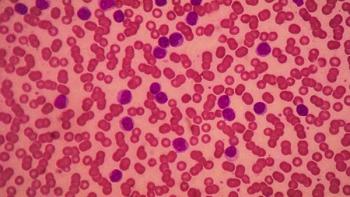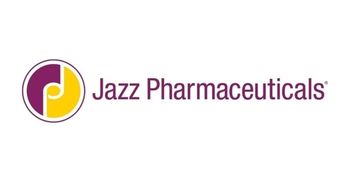
People who regularly sleep less than 4 hours or more than 11 hours were found to be 2 to 3 times more likely to have pulmonary fibrosis compared with those who sleep for 7 hours a day, according to study results.

People who regularly sleep less than 4 hours or more than 11 hours were found to be 2 to 3 times more likely to have pulmonary fibrosis compared with those who sleep for 7 hours a day, according to study results.

Unnecessary testing may expose young women to “preventable harms,” including anxiety, false-positives, and treatment that isn’t needed, according to findings in JAMA Internal Medicine.

The current US flu season is shaping up to be among the worst in decades; a single dose of the HPV vaccine shows efficacy in an analysis; generic manufacturers plan to appeal a California ruling on pay-to-delay deals.

The researchers said that they are the first to demonstrate elevated concentrations of serum fibroblast growth factor 21 (FGF21) in patients with plaque-type psoriasis.

Heart disease and kidney disease are widely known comorbidities of diabetes, but a lesser-known complication that dramatically effects between 10 million and 20 million American adults is peripheral arterial disease (PAD). In its most extreme form, PAD can lead to limb loss.

Epigenetic drug therapy should be explored for certain patients with marginal zone lymphoma, according to a recent study.

A recent study looked at the impact of stereotyped B-cell receptor immunoglobulins in patients with chronic lymphocytic leukemia (CLL).

Thrombotic events are a significant cause of morbidity and mortality for patients with polycythemia vera (PV), and previous reports have shown a significant correlation between elevated white blood cell (WBC) count and thrombotic events. A recently published study among patients treated in the US Veterans Health Administration (VHA) has now substantiated those findings, suggesting that controlling WBC count should be an important facet of managing PV.

Researchers recently developed a novel paradigm that connects the pathophysiology of multiple sclerosis (MS) to the hygiene hypothesis and the microbiome.

The researchers reported that aging brings degeneration of the circadian pacemaker, a progressive decline in melatonin output and decrease in rhythm amplitude which contributes to increasing sleep fragmentation and waking up earlier in the morning.

The results suggest that delaying initiation of disease-modifying therapy (DMT), especially after a poorly recovered relapse, decreases the likelihood of remaining disability free by age 45.

The workshops were aimed at ensuring that primary care centers were following clinical care guidelines developed after 2011 meeting requirements of a national certification program.

Testicular cancer is the most common cancer to be diagnosed in men as younger men—those younger than age 40—and it can be particularly aggressive. Advances in therapy have improved survival rates, but if young men have chemotherapy after surgery, they may live with side effects for decades.

This week, the top managed care stories included the FDA announcing a ban on flavored e-cigarettes; Google’s artificial intelligence system can find breast cancer as well as experts; new diabetes guidelines including 2 new drug classes to treat comorbidities.

No statistically significant difference in central macular thickness (CMT) between patients with and without diabetes was found preoperatively and in the early postoperative period after uncomplicated phacoemulsification surgery, according to study results.

Coverage of our peer-reviewed research and news reporting in the healthcare and mainstream press.

Drug prices rose by 5.8% to start 2020, a slight decrease compared with last year's average increase; lower patient satisfaction shown after hospital mergers/acquisitions; study findings link exposure to secondhand smoke to risk of type 2 diabetes (T2D).

This week, researchers pinpointed the effects of shuttered automobile factories, releasing results in JAMA Internal Medicine that show plant closures from 1999 to 2016 were associated with increases in deaths from opioid overdoses.

In MassMutual’s 2019 Workplace Financial Wellness Study, survey data gathered by Greenwald & Associates reported that a large majority of employers believe their employees are struggling financially in saving for retirement, settling debt, and dealing with medical costs.

In a recently published study in The Journal of Headache and Pain, Italian researchers compiled data on 548 patients suffering from chronic and episodic migraines enrolled in a tertiary level headache center to determine overall costs incurred.

Five issues in healthcare were spotlighted as key developments to watch; FDA to ban all e-cig vape flavors except for menthol and tobacco; Google AI system shown to improve detection of breast cancer through mammograms.

Splenomegaly, or enlargement of the spleen, is common in patients with Philadelphia-negative myeloproliferative neoplasms, and it is associated with symptoms like early satiety and abdominal pain. The role that splenomegaly has in terms of quality of life and prognosis in primary myelofibrosis is fairly well understood, but it has been less frequently investigated among patients with essential thrombocythemia (ET) and polycythemia vera (PV).

An executive with Jazz Pharmaceuticals said the ability to extend survival time in patients with secondary AML, and potentially offer them improved odds for transplant is an advance over traditional chemotherapy.

The results suggested that fusion events contribute to the complexity of acute myeloid leukemia and typically result from chromosomal rearrangements.

We polled our readers to find out which of 5 stories they thought was the most important healthcare story of the year. Here are the results.

Water fluoride concentrations were associated with higher odds of reports of snorting, gasping, or stopping breathing while sleeping at night.


Maximal inspiratory pressure (MIP) is associated with leg muscle strength in patients with chronic obstructive pulmonary disease (COPD), but not with walking distance or symptoms exhibited by the same patients, according to a recent study.

Patients with acute heart failure often require immediate treatment to restore optimal heart function. The 2 primary methods of revascularization are coronary artery bypass graft and percutaneous coronary intervention, but the preferred strategy for use in these patients requires clarification due to risk.

From linguistic dissonances of medical terminology to the generation of new care pathways for Medicare patients, the top 5 most-read articles of The American Journal of Accountable Care® spanned topics relevant to both patients and providers in 2019.

259 Prospect Plains Rd, Bldg H
Cranbury, NJ 08512
© 2025 MJH Life Sciences®
All rights reserved.
